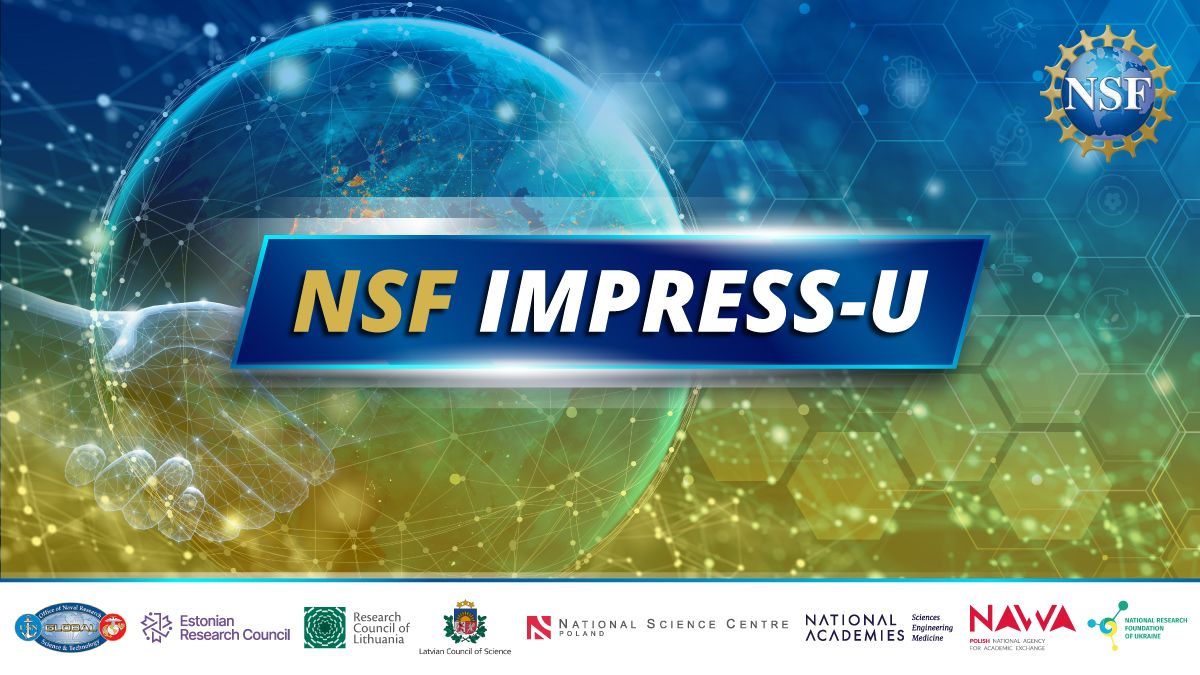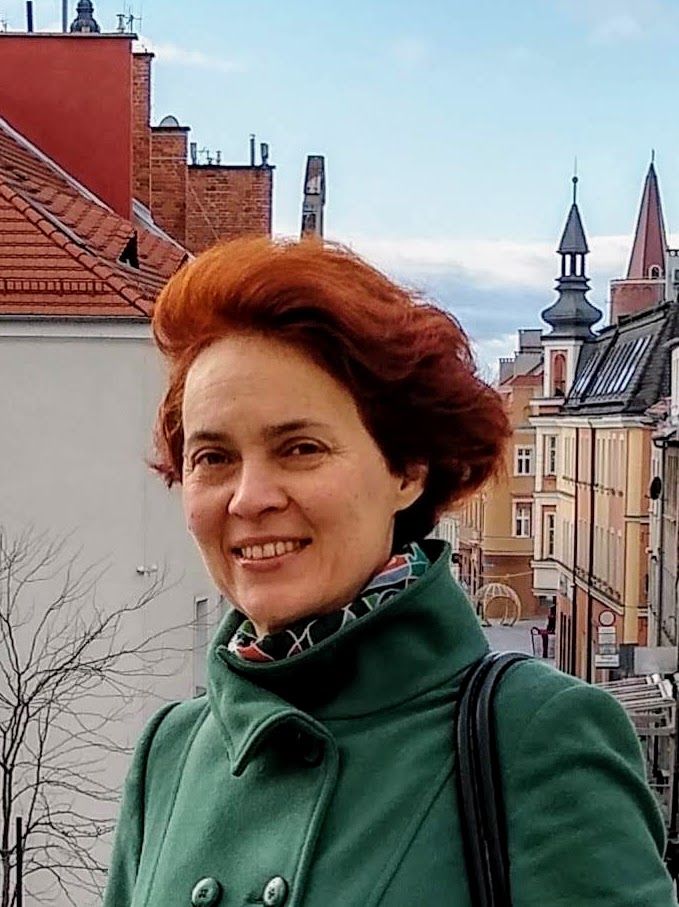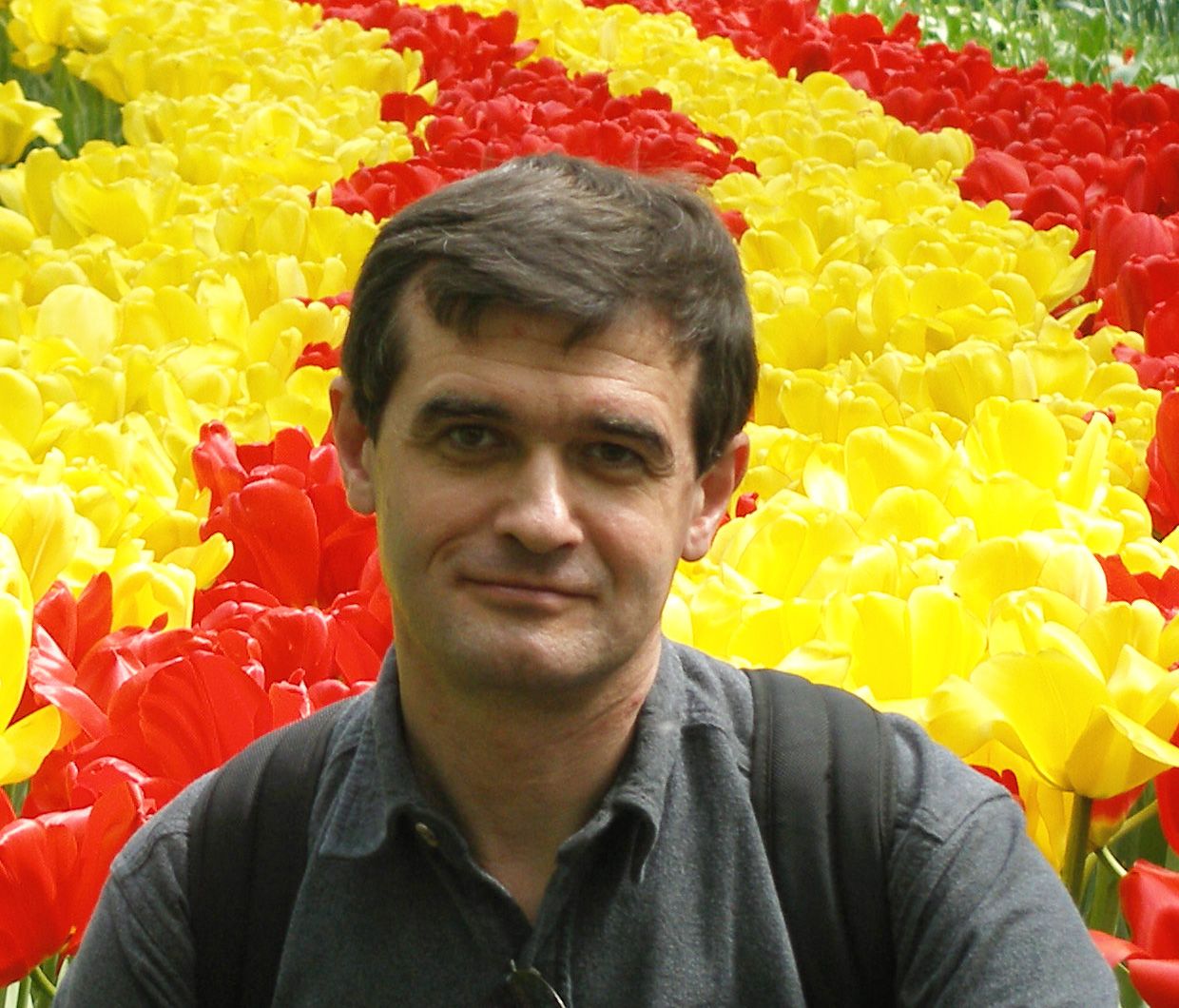Researchers from Rzeszów and Opole have just won grants under the international IMPRESS-U call. For the next two years, they will be working on ambitious research projects in cooperation with US and Ukrainian scientists. The NCN will fund their research with a total of nearly 1.5 million zlotys.
 The IMPRESS-U (International Multilateral Partnerships for Resilient Education and Science System in Ukraine) call was announced in August 2023. Its objectives are to (1) support excellence in science and engineering research, education, and innovation through international collaboration and (2) promote and catalyze integration of Ukrainian researchers in the global research community.
The IMPRESS-U (International Multilateral Partnerships for Resilient Education and Science System in Ukraine) call was announced in August 2023. Its objectives are to (1) support excellence in science and engineering research, education, and innovation through international collaboration and (2) promote and catalyze integration of Ukrainian researchers in the global research community.
IMPRESS-U opens up new opportunities for cooperation between Polish and Ukrainian researchers and their colleagues in the US and, optionally, the Baltic countries: Lithuania, Latvia and Estonia.
The US National Science Foundation (NSF) is the initiator of the call and its lead agency, which means it is responsible for the merit review of all international proposals, while the other partner agencies approve the results of its review and award funding to their respective research teams.
The IMPRESS-U initiative now gives Polish researchers an opportunity to actively participate in the effort of integrating Ukrainian researchers into the global research community and help rebuild the scientific ecosystem of Ukraine.
Enhancing deep neural networks
One of the first two winners of the call is a team led by Dr hab. Anna Lytova from the University of Opole, who will be working in collaboration with Dr hab Radosław Adamczak from the University of Warsaw. The team will carry out a project entitled Random Matrix Theory and its Applications in Deep Learning together with 10 other participants from the United States and Ukraine. Their US partner is Prof. Leonid Berlyand from The Pennsylvania State University, while research on the Ukrainian side will be headed by Prof. Victor Slavin from the B. Verkin Institute for Low Temperature Physics and Engineering of the National Academy of Sciences of Ukraine in Kharkiv.
 Dr hab. Anna Lytova
Dr hab. Anna Lytova is a professor at the Department of Physics of the University of Opole. She earned her PhD at the V. N. Karazin Kharkiv National University and has lived and worked in Poland for the past 7 years. Her research is centred on random matrix theory, random graph theory, asymptotic geometric analysis and statistics.
Dr hab. Anna Lytova
Dr hab. Anna Lytova is a professor at the Department of Physics of the University of Opole. She earned her PhD at the V. N. Karazin Kharkiv National University and has lived and worked in Poland for the past 7 years. Her research is centred on random matrix theory, random graph theory, asymptotic geometric analysis and statistics.
“It was Prof. Berlyand who approached me with his idea of submitting a joint proposal under the IMPRESS-U call. I was familiar with his research record and his work – we had met previously at various seminars – but the IMPRESS-U project will be our first collaboration”, says Anna Lytova, “we really wanted to take advantage of this funding opportunity to support talented mathematicians from the so-called Kharkiv school of mathematics in these difficult times of war”.
Their IMPRESS-U project is dedicated to random matrix theory. Put simply, matrices are rectangular or square tables of numbers, which represent a phenomenon through different parameters, many of which are unknown. In particular, matrices are used to solve systems of equations. Random matrix theory is a subfield of mathematics, which studies the spectrum of large matrices with random entries selected from different probability distributions and with different types of symmetry. Random matrices are very useful for modelling complex systems and can be applied in various disciplines and contexts. In recent years, they have found applications in the rapidly growing field of machine learning, e.g. in deep neural network theory. Scientists now face the challenge of understanding and improving the efficacy of these network learning processes. In their project under the IMPRESS-U call, the Opole- and Warsaw-based team, in cooperation with their international partners, will analyse the spectral properties of random matrices related to neural networks with analytical and numerical methods; they will also work on developing tools to improve accuracy and reduce the complexity of training algorithms.
“Besides doing research, our project also aims to support the educational initiatives undertaken by talented young mathematicians, students and graduate students who, despite the ongoing war, continue to hold classes with the children from competitive maths clubs and teach the next generation of Ukrainian mathematicians, Dr hab. Lytova emphasises.
The NCN decided to award nearly 360,000 zlotys to the Polish part of the project.
Developing regenerative medicine
The other researcher to be awarded NCN funding under the IMPRESS-U call is Dr Olexandr Korchynskyi. He is a molecular and cell biologist, who has been working on methods of regulating stem cell differentiation and function for more than 20 years. His research record includes papers in “Nature” and “Science,” and he is currently employed as an Associate Professor at the University of Rzeszów.
 Dr Olexandr Korchynskyi
Korchynskyi heads a Polish team that will use the IMPRESS-U grant to fund a project entitled “High-throughput agile interfaces for cell sorting (HiTACS)”. The US partner is a team led by Dr Sergiy Minko from the University of Georgia, and, on the Ukrainian side, Prof. Yaroslav Ilnytskyy from the Institute of Condensed Phase Physics in Lviv. The budget of the Polish part of the projects is nearly 1.08 million zlotys.
Dr Olexandr Korchynskyi
Korchynskyi heads a Polish team that will use the IMPRESS-U grant to fund a project entitled “High-throughput agile interfaces for cell sorting (HiTACS)”. The US partner is a team led by Dr Sergiy Minko from the University of Georgia, and, on the Ukrainian side, Prof. Yaroslav Ilnytskyy from the Institute of Condensed Phase Physics in Lviv. The budget of the Polish part of the projects is nearly 1.08 million zlotys.
Aging societies, diseases, disorders and armed conflicts pose a growing challenge to regenerative medicine. Scientists around the world are working on new methods that would allow specific therapeutic stem cells to quickly proliferate and increase our ability to reconstruct tissue deficits or grow entire organs that could be transplanted into patients. The greatest challenge in this context today is to be able to separate therapeutic cells from those that could be potentially dangerous quickly and effectively.
– Our American and Ukrainian partners have worked on stimuli-responsive biomaterials for over a decade. On the other hand, since 2020 we have worked with researchers in Ukraine to create computer-based models of biomedical processes. Owing to the IMPRESS-U program, we discovered an ample opportunity to turn our preexisting collaborations in a larger multidisciplinary research project addressing emerging regenerative medicine technologies. My team has a lot of experience in this area, so we enthusiastically extended our collaboration and jumped on board to apply for a grant under the IMPRESS-U call”, says Dr Korchynskyi.
Their international IMPRESS-U grant consortium will work on developing advanced “smart” multi-trait surfaces that could be used for high-efficiency sorting of induced pluripotent stem cells (iPS). The researchers will use simulation modelling and experimental methods.
“IMPRESS-U is an education and research programme all rolled into one. Since research on the Polish side will be done in Rzeszów, a town in close proximity to the Ukrainian city of Lviv, we will be able to serve as an effective hub for the educational exchange between Ukrainian and Polish youth”, stresses Dr Korchynskyi.
About the call
Proposals are still being accepted under the IMPRESS-U call. Funding is available for projects that involve research teams from Poland, Ukraine and the US, as well as, optionally, Lithuania, Latvia or Estonia. The PI of the Polish team must hold at least a PhD degree and the Polish part of the project may be planned over a maximum of 24 months. In addition, projects must address the requirements of the EAGER type of special NSF proposals. The Polish partner institutions under IMPRESS-U are the National Science Centre, which has a total budget of 17 million zlotys to distribute among new projects prepared by Polish teams, and the National Agency for Academic Exchange, with a total budget of 7 million, which will be used to fund the expansion of US NSF projects already underway to include cooperation with Polish teams under the so-called International Supplements opportunity.
Foreign teams may submit their applications to the US National Academy of Sciences (US NAS) – for Ukrainian researchers, the Research Council of Lithuania (LMT), the Latvian Council of Science (LCS) and the Estonian Research Council (ETAG).
To learn more about the idea behind IMPRESS-U and explore its terms and conditions, listen to the 7th episode of the NCN podcast (in Polish), entirely devoted to NCN’s international cooperation.
